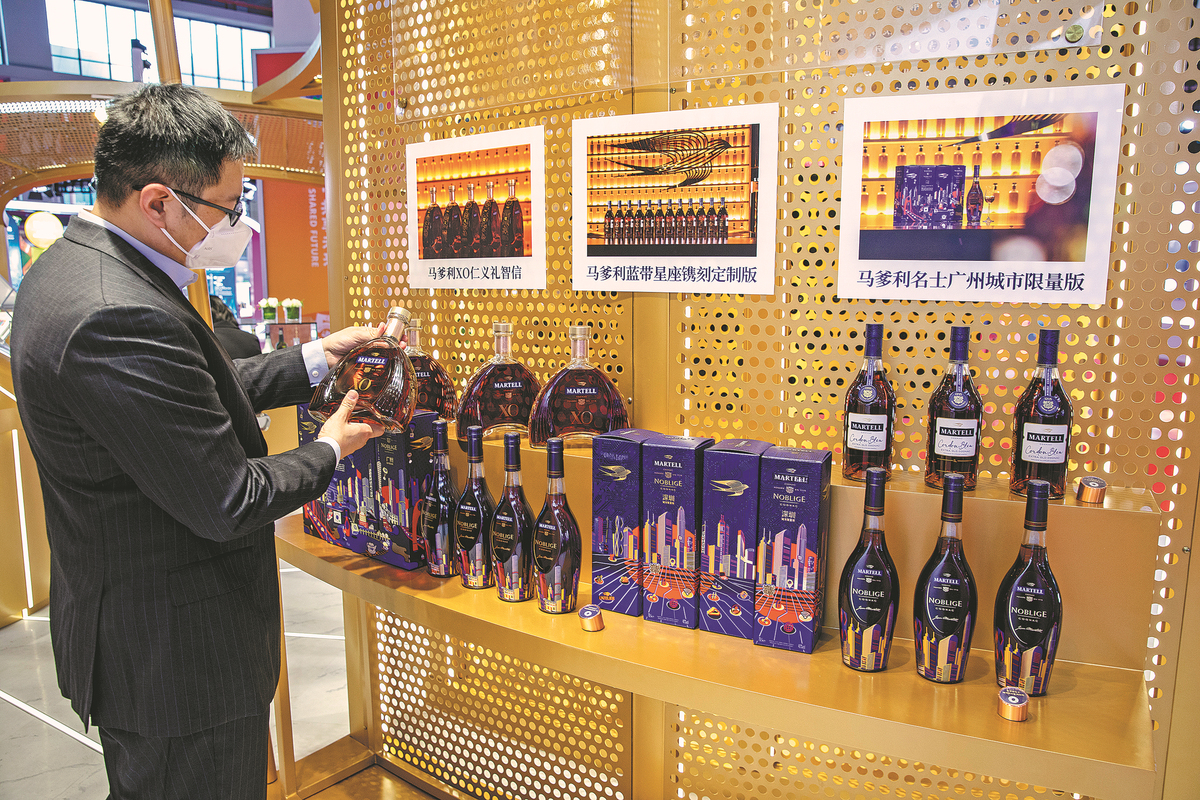Wine sales bolstered by young buyers
By ZHU WENQIAN | China Daily | Updated: 2022-12-02 10:04

Purchases expected to double between 2021 and 2026 as market being reshaped
Generation Z consumers — those born in the late 1990s or early 2000s — are expected to drive the growth of wine consumption in China in the next few years, according to a new report from GlobalData, a consulting and analytics company headquartered in London.
The report says many young consumers think that drinking wine augments beauty and health. Also, some are influenced by Western lifestyles and habits, the report found.
By 2026, sales of wines in China are predicted to hit 462.4 billion yuan ($65.4 billion), doubling the amount in 2021. The compound annual growth rate over the five-year period is expected to reach 11.5 percent for still wine and 11.3 percent for sparkling wine, fueled by increasing spending by millennial and Gen Z consumers.
"Wine is becoming a popular alcoholic drink among Chinese consumers. Young millennial and Gen Z adults, who wield considerable purchasing power, are reshaping the Chinese wine market," said Bobby Verghese, a consumer analyst at GlobalData.
"Wine vendors are adapting their product offerings, marketing and branding to suit the young cohort. Wine brands are also building their presence on leading e-commerce portals such as Alibaba's Tmall, targeting these digital newbies and natives," he said.
China has some 233 million Gen Z consumers, accounting for 17 percent of the total population. Last year, they spent nearly 5 trillion yuan, representing 11.2 percent of the total value of national consumption, according to a recent report by Guoyuan Securities.
"Women who rarely drink wine are concerned more about whether wine bottles' shapes and labels are beautiful, and whether they will look good in pictures. Women who drink often pay more attention to the wine itself, such as the level of aroma, concentration and other professional indicators, and they tend to buy relatively more expensive products," said Libby, a young blogger on Xiaohongshu, or Little Red Book, a lifestyle social media platform.
Still, due to challenges created by the COVID-19 pandemic, wine sales in China declined by 2.7 percent year-on-year by value in 2021, and sales to bars and restaurants contributed heavily to the majority of wine sales, followed by sales through retail stores and supermarkets, GlobalData found.
In 2021, China's total wine consumption reached 1.05 billion liters, down 15 percent from 2020 in volume, according to the International Grape and Wine Organization.
"Besides restrictions on some offline consumption scenarios and sales channels due to the COVID-19 pandemic, the psychology of some consumers has changed since the pandemic, and they have been focusing more on purchasing daily necessities with rigid demand. Thus, the wine market has been somewhat affected," said He Jianhong, a wine aficionado and a digital marketing strategist based in Jiangsu province.
























